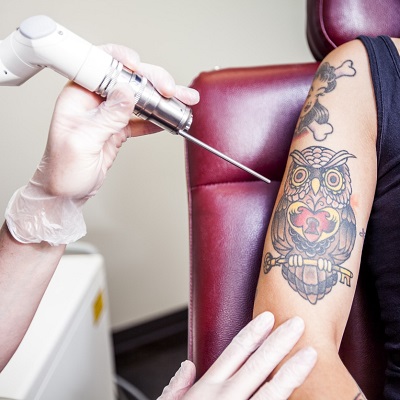Introduction
In recent years, the trend of do-it-yourself (DIY) projects has gained significant popularity, driven by the internet's vast array of resources and tutorials. From home renovations to skincare routines, many people are tempted to take matters into their own hands. However, one area where this approach is not only ill-advised but potentially dangerous is tattoo removal. Specifically, the allure of DIY laser tattoo removal has emerged, promising a quick and cost-effective solution to unwanted ink. This article explores the inherent risks and dangers associated with attempting to remove tattoos using laser technology at Laser Tattoo Removal Clinic in Oman, emphasizing why professional treatment is the safest and most effective option.
Understanding Laser Tattoo Removal
Before delving into the risks of DIY laser tattoo removal, it’s crucial to understand how professional laser tattoo removal works. The process involves the use of specialized lasers that emit specific wavelengths of light, targeting and breaking down the ink particles in the skin. This allows the body’s immune system to gradually eliminate the ink over time. Professional practitioners have extensive training and experience, ensuring the procedure is performed safely and effectively.
The Complexity of Tattoo Ink
Tattoo inks are composed of various pigments that react differently to laser light. Professional tattoo removal practitioners select the appropriate laser wavelength based on the color and type of ink used in the tattoo. Attempting to replicate this complex process at home, using devices not specifically designed for this purpose, can lead to suboptimal results and serious complications.
The Risks of DIY Laser Tattoo Removal
1. Injury and Skin Damage
One of the most immediate risks of DIY laser tattoo removal is the potential for severe skin damage. Improper use of lasers can lead to burns, scars, and changes in skin pigmentation. The skin is a sensitive organ, and without the expertise to assess skin types and conditions, individuals risk inflicting irreversible harm. Unlike professionals, DIYers lack the knowledge to manage complications effectively.
2. Infection
When engaging in any skin procedure, there is an inherent risk of infection. Professional tattoo removal includes sterile equipment and techniques designed to minimize this risk. In contrast, a DIY setup often lacks the necessary hygiene standards. Open skin from laser treatment is vulnerable to bacteria, leading to infections that can worsen the condition of the skin and complicate healing.
3. Incomplete Removal
Another significant risk of DIY laser tattoo removal is incomplete or uneven removal of the tattoo. Without professional training, individuals may misjudge the treatment's intensity or duration, leading to inconsistent results. In some cases, this can leave behind a distorted or faded tattoo, which might be more challenging to remove in the future.
4. Emotional and Psychological Impact
The decision to remove a tattoo can be deeply personal, often linked to significant life changes or emotional circumstances. Poor results from DIY attempts can lead to feelings of frustration, disappointment, and regret. The psychological toll of an unsatisfactory removal experience can sometimes be more significant than the tattoo itself.
5. Legal and Safety Concerns
Many DIY laser tattoo removal devices are not approved or regulated by health authorities. Using unregulated equipment poses safety risks, as these devices may not be safe for skin use or effective in removing tattoos. This lack of regulation can also lead to legal consequences if someone experiences adverse effects after using such products.
The Importance of Professional Treatment
Given the multitude of risks associated with DIY laser tattoo removal, the importance of seeking professional treatment cannot be overstated. Licensed practitioners not only possess the right equipment but also the necessary training to evaluate individual cases effectively. They can provide personalized treatment plans, minimizing risks and ensuring the best possible outcomes.
Alternative Methods for Tattoo Removal
While laser removal is the most effective method for complete tattoo removal, there are alternative options for those seeking to alter or remove tattoos. These include:
- Chemical Peels: Using chemicals to exfoliate the skin can fade tattoos over time.
- Saline Tattoo Removal: This method involves injecting saline solution into the tattooed area, drawing out the ink.
- Cover-up Tattoos: In some cases, a new design can be placed over an existing tattoo, effectively hiding it.
Conclusion
The allure of DIY laser tattoo removal might seem tempting due to perceived cost savings and convenience, but the risks far outweigh the potential benefits. From severe skin damage and infections to incomplete results and emotional distress, attempting to remove a tattoo at home can lead to more problems than it solves. Seeking the expertise of a licensed professional is the safest and most effective route to tattoo removal. Investing in professional treatment not only protects your health and well-being but also ensures that you achieve the results you desire, leaving you free to move forward without the burden of unwanted ink.





Comments